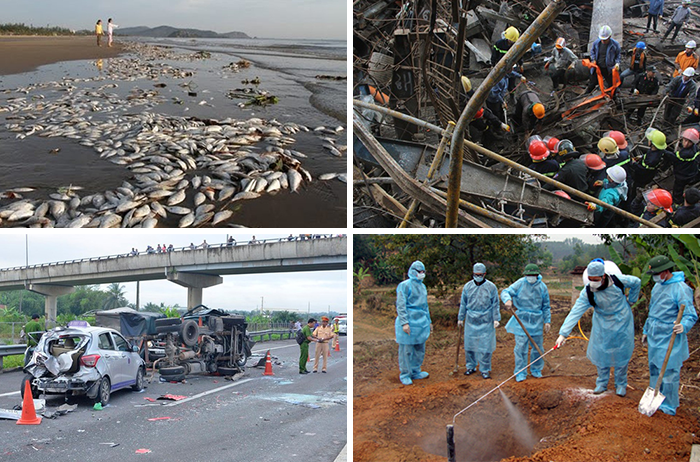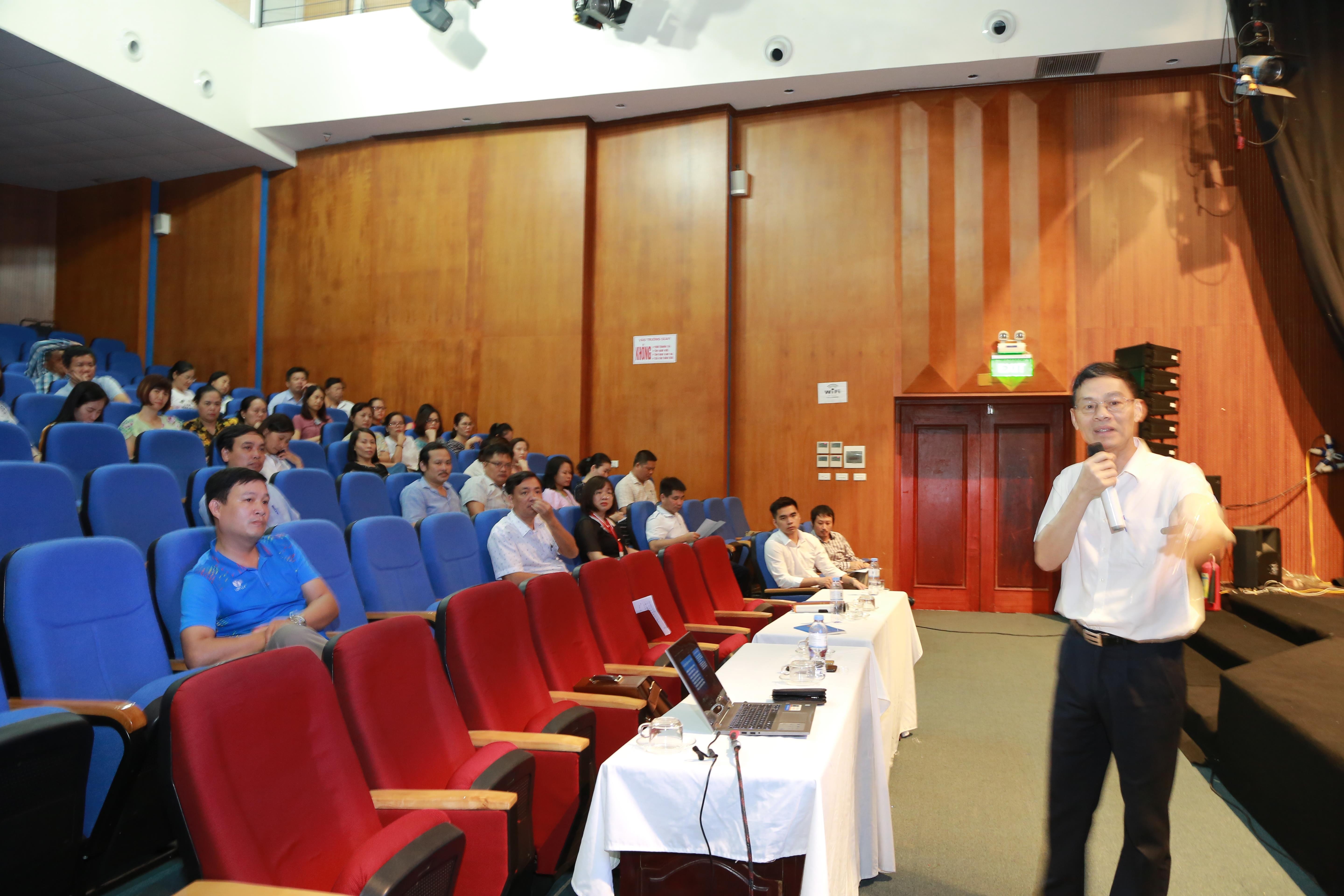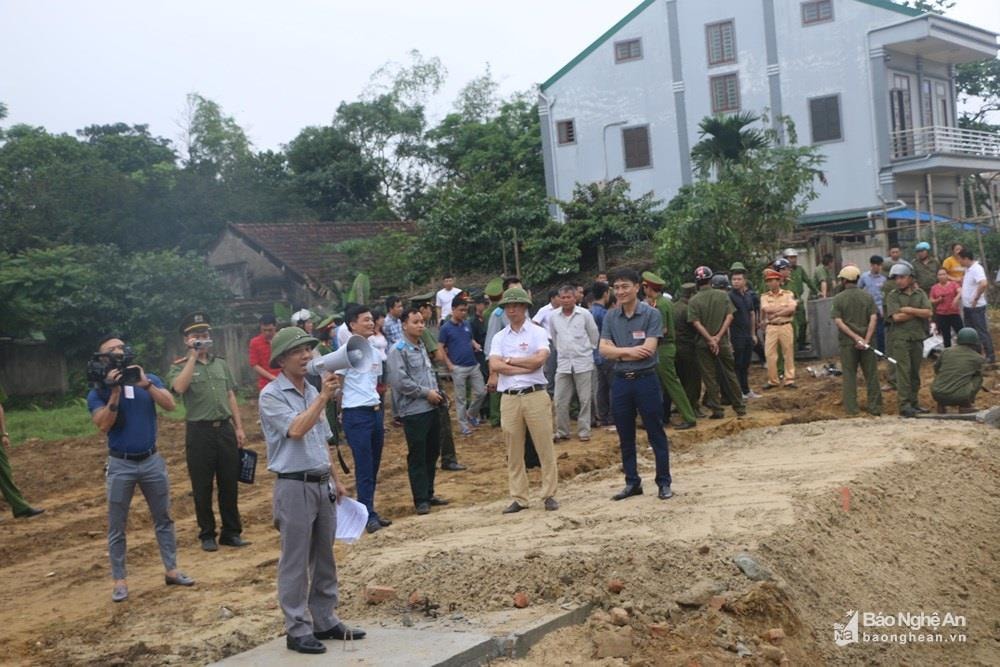Building a team of "scouts" on the media front
(Baonghean) - Discussion between Mr. Le Van Nghiem - Former Director of the Department of Foreign Information, Ministry of Information and Communications with Nghe An Newspaper on resolving media crises (KHTT) in state agencies.
Reporter:Sir! The KHTT is becoming a threat, with the risk of causing many consequences for state agencies at all levels, especially in the current context where the public and public opinion can easily push the KHTT into a hot spot for security and order issues. Could you please tell us the cause and how to solve the KHTT?
Mr. Le Van Nghiem:The situation of public opinion corruption for state agencies is a situation where a state agency becomes the focus of the media in an unwanted way and risks damaging the image and reputation of the state agency and its head. Public opinion corruption occurs when unexpected incidents such as natural disasters, epidemics, environmental disasters, fires, traffic accidents, work accidents; or violations of the law, violations of ethics, errors, weaknesses in performing official duties or negative acts of corruption, waste occur..., which receive special attention from public opinion and spread quickly on social networks, domestic newspapers and foreign newspapers, but the state agency has not spoken out or the spokesperson has provided information but it is not clear, without a full and convincing explanation.
 |
| Unexpected incidents appearing on social networks and domestic and foreign newspapers have caused a media crisis (Illustrative image only) |
When information is not provided fully and promptly by state agencies, it leads to information about incidents, events, and problems that occur being easily distorted, embellished, and inaccurate; even fabricated and giving opinions and comments that lack culture and basis from an unfriendly force. This makes KHTT more complicated and difficult to solve.
"The reason is that currently, state agencies lack a professional communications "fire prevention and fighting" apparatus; that is, state agencies and agency heads do not have a team of staff to advise on preventing and handling cybercrime systematically and properly. And in practice, when cybercrime occurs, state agencies are often confused in responding and resolving it."
Reporter:To effectively solve the problem, what solutions and measures do each state agency at all levels need to have, sir?
Mr. Le Van Nghiem:As we know, behind the KHTT is a political crisis, a crisis of public confidence, affecting the assurance of security and order... For that reason, when KHTT occurs, the first requirement for state agencies is to be sensitive and quickly recognize KHTT when it first appears, just like when a fire occurs, the sooner it is detected, the easier it is to handle, on the contrary, if it is detected late, the more difficult it is to handle and its negative impact is very large. To detect early, it is necessary to have a specialized "reconnaissance" system and department on the media front to monitor and synthesize public opinion regularly on social networks and through the press to detect KHTT incidents early. Or state agencies can hire media services, media consultants to monitor public opinion regularly and continuously.
 |
| Mr. Le Van Nghiem talks with reporters and journalists about the media crisis. Photo: Dao Tuan |
The second requirement for state agencies when conducting information security audits is to take control of the situation, assess the scale, nature, level, and scope, and then have appropriate solutions. In terms of communication, state agencies need to identify the source of information and publish the identity of that source on the agency's electronic information portal or website, making it easier for press agencies to access information. On the other hand, state agencies must proactively provide early information with an open and public attitude, without hiding information, covering up information, or refusing to provide information. Because when information security audits occur, people's demand for information skyrockets, and if they proactively provide early, widespread information, and explain thoroughly to the people, state agencies will have occupied the "information battlefield", which means that inaccurate, misleading information or baseless accusations, distortions, and slander will be eliminated and cleared up.
On the part of the heads of agencies, it is necessary to demonstrate responsibility, be ready to admit mistakes and shortcomings, if any, and accept responsibility for themselves and their subordinates. Heads of state agencies also need to demonstrate their capacity when KHTT occurs through closely following reality, grasping real problems, updating information and having a direction for handling and overcoming them with a spirit of openness, knowing how to listen and absorb public opinion.
"Handling a media crisis well is one of the measures of the mettle and management capacity of a state agency and its head."
 |
| Vinh City authorities are forcibly reclaiming land to implement the 72m road project. Photo: Khanh Ly |
Reporter:So, what is the role of the press in handling administrative procedures for state agencies, sir?
Mr. Le Van Nghiem:The solutions and measures applied by state agencies to handle KHTT, such as posting press releases or articles, answering interviews, organizing press conferences, updating progress on settlement, etc., are all implemented through tools and media, from electronic information portals, to websites, personal Facebook pages and press agencies, such as posting press releases or articles, answering interviews, organizing press conferences.
Thus, the press plays a role as a companion and an insider in helping state agencies resolve KHTT through consulting state agencies on communication measures and solutions to resolve the incident in the most effective way; at the same time, helping state agencies publish information, statements, and progress of resolution related to the incident in the fastest and most effective way. On the other hand, the press is also considered a professional communication force for state agencies.
 |
However, in reality, some agencies and heads of some agencies have not yet properly recognized the role of the press as a companion, a strategic partner to help the agency and the head of the agency handle the KHTT incident; on the contrary, they consider the press as a force that makes things difficult for them, so they do not proactively provide information to the press to join in, but are "single-handedly" solving the KHTT. Even Decree No. 09/2017/ND-CP, dated February 9, 2017, detailing the statements and information provision to the press of state administrative agencies, the heads of many agencies, including provincial departments, branches and district People's Committees, have not yet properly recognized and understood their responsibility to speak and provide information to the press, but are still "outsourcing" to their deputies or the Chief of Office of the agency or locality to do it instead. These are issues that state agencies need to overcome, to ensure that all information is proactively and promptly disclosed to the press so that they can join in and handle the KHTT.
On the part of press agencies, it is necessary to be responsible for upholding the role and mission assigned by the Party and the people to improve the effectiveness of information, truly being a support for state management agencies in the process of leadership, direction as well as handling of inappropriate and urgent issues that arise, avoiding the situation where press agencies and journalists go against their principles and purposes of operation so that state agencies are "cry" and "wary" of them.
Reporter:Thank you for this conversation!

